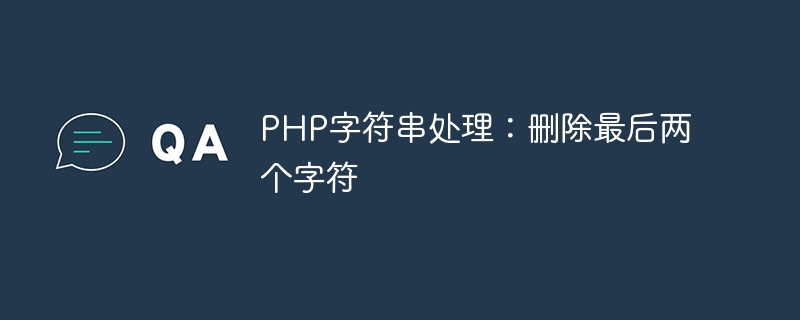Home >Backend Development >PHP Tutorial >PHP string processing: remove last two characters
PHP string processing: remove last two characters
- WBOYWBOYWBOYWBOYWBOYWBOYWBOYWBOYWBOYWBOYWBOYWBOYWBOriginal
- 2024-03-24 11:42:04961browse

Title: PHP String Processing: Remove the last two characters, specific code examples are required
In PHP development, string processing is one of the very common operations . Sometimes we need to intercept or delete a string, such as deleting the last two characters of a string. In this article, we will explain how to remove the last two characters of a string using PHP code.
First, we need a string to operate on. For example, we have a string $str = "Hello, World!";. Now, we want to delete the last two characters of this string, namely the "d!" characters.
The following is a specific PHP code example:
<?php // 定义初始字符串 $str = "Hello, World!"; // 取字符串长度 $length = strlen($str); // 删除最后两个字符 $newStr = substr($str, 0, $length-2); // 输出删除后的字符串 echo $newStr; ?>
In the above code, we first use the strlen() function to get the length of the string, and then use the substr() function to start from position 0 Start intercepting to the third to last character position, that is, delete the last two characters. Finally, the deleted string is output.
In actual development, we can encapsulate the above code into a function as needed for future reuse. In this way, we can easily delete the last two characters of a string.
To summarize, PHP provides a wealth of string processing functions, including operations such as interception, replacement, and connection. Developers can flexibly use these functions according to specific needs. I hope this article can be helpful to beginners. You can continue to learn and practice more about PHP string processing.
The above is the detailed content of PHP string processing: remove last two characters. For more information, please follow other related articles on the PHP Chinese website!

